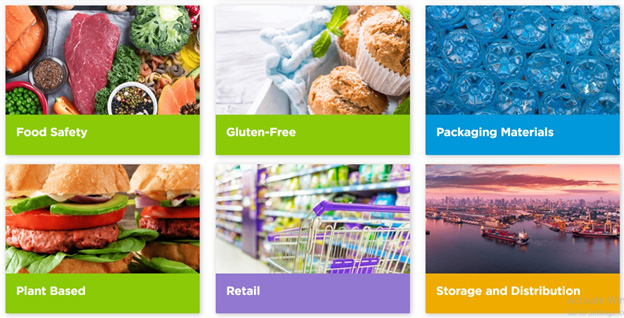Introduction
To meet the requirements of product safety, different management standards are set in the food and beverage sector. Out of nearly 21,000 ISO international standards, about 1000 are specifically dedicated to food and beverages. These standards deal with diverse subjects like agricultural machinery, logistics, transportation, packaging, and storage. For the different stages, different management standards need to be followed to satisfy the purpose.
The companies need to form their mission and vision in a way that creates a positive work environment for F&B safety. The ground staff needs to be trained and educated about the physical, chemical, and biological aspects of F&B safety. Characteristics like accountability and adaptability need to be ingrained in every member of the company, starting from management to ground staff. In this blog, we will see the necessity of F&B safety standards and learn about different F&B safety standards.
We, at BizRep services, offer management standards like HACCP, FSSC, BRC Global Standards certification, ISO 22000 certification in Qatar and ISO 9001 Certification in Qatar. For management standards certification in Qatar, contact us today!
Why Are Food and Beverage Safety Standards Necessary?
Food and beverages are not zero-risk commodities. There is always a percentage of risk associated with them as they go through a long supply chain and many steps to reach the end consumer. In today’s world, a food product is made using different sources from different regions or different countries. If any of the sources is not safe, then the end consumer can suffer illness and, in the worst case, death. Companies need to avoid such disasters and put their customers’ safety first.
They can attain greater profitability by using food safety certifications and verifications. This ensures their products, processes, and systems in the supply chain meet the accepted food standards. With the help of the certifications, consumers can be sure about the safety of food and beverages.
What are the Various Food Safety Standards that Ensure the Quality of Food and Beverages?
These are some of the most important and widely used standards to ensure the quality of food and beverages.
1. HACCP
HACCP is the acronym for Hazard Analysis and Critical Control Points. This deals with the focus and control of potential hazards related to food production. Some of the major food risks like microbiological, chemical, and physical contaminants are being taken care of and a safe product is assured to the consumers.
2. FSSC
FSSC stands for Food Safety System Certification. The FSSC 22000 is specially designed for food manufacturers. It is a combination of the ISO 22000 and the PAS 220 requirements. With these standards, your company’s reputation is boosted among the consumers, and you get a batch as a trusted supplier.
3. BRCGS
British Retail Consortium global standards (BRCGS) provide a framework for food and beverage organizations to manage the safety, quality, and integrity of their products and services. The retailers, manufacturers, importers, caterers, and ingredient suppliers can be accredited by the BRC bodies to make their position more substantial in the market.
4. ISO 22000
The ISO 22000 certification in Qatar is given in the food industry to any organization in the supply chain that meets the requirements for a food safety management system. This creates a roadmap for organizations to control food safety hazards and make food safer.
5. ISO 9001
ISO 9001 Certification in Qatar demonstrates the presence of an effective quality management system and demonstrates the company’s commitment to providing higher customer satisfaction. This important management standard along with other food safety management standards ensures better quality products for consumers.
Conclusion
Biz Rep Services provides a variety of management certifications for your food and beverage business needs, including HACCP, FSSC, British Retail Consortium global standards (BRCGS), ISO 22000 certification in Qatar, and ISO 9001 Certification in Qatar. For more information, please visit www.bizrepservices.com. For any queries, contact us at +974 4036 9943, or info@bizrepservices.com.
Key Takeaways
- To meet the requirements of product safety, different management standards are set in the food and beverage sector.
- These standards deal with diverse subjects like agricultural machinery, logistics, transportation, packaging, and storage.
- Companies need to avoid catastrophes caused due to low-quality food and put their customers’ safety at the top.
- Some of the most important and widely used standards to ensure the quality of F&B are HACCP, FSSC, BRCGS, ISO 22000, and ISO 9001.




